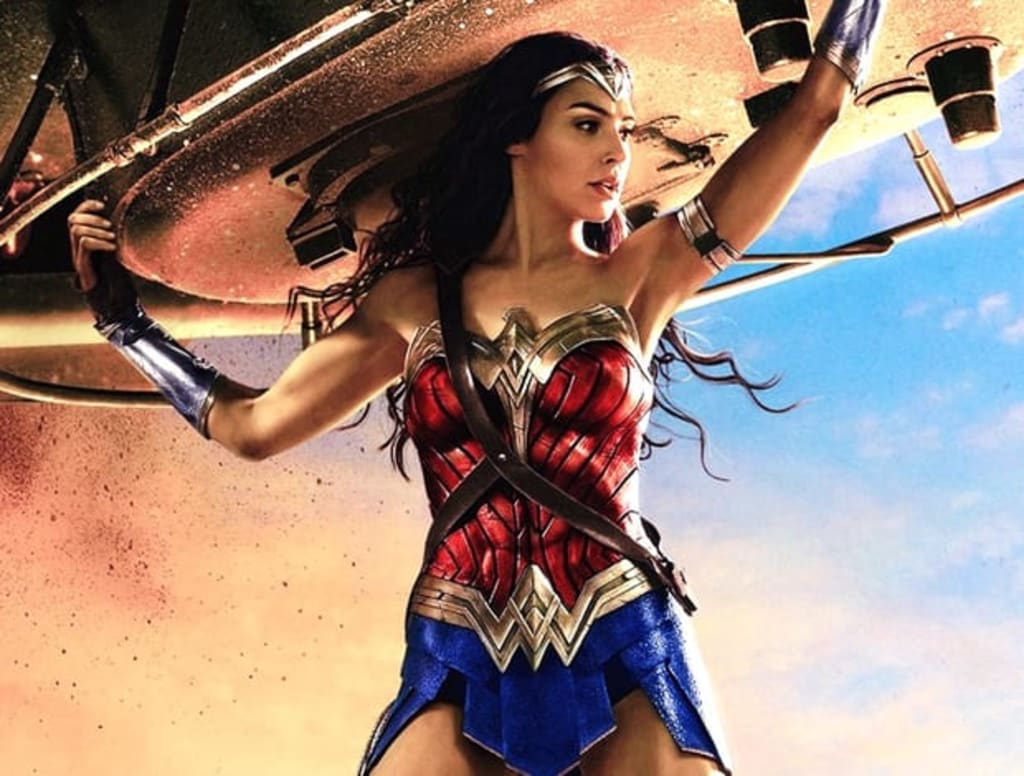
As controversial as last year's Batman v Superman: Dawn of Justice was, most agree about one thing: Zack Snyder made an inspired choice when he cast #GalGadot as Wonder Woman. The character stole every scene of Batman v Superman she appeared in, and now her first ever solo movie is proving to be a record-breaking hit.
But how well does Wonder Woman gel with Batman v Superman? And is Patty Jenkins's vision of the character different to the one we saw last year? Let's dig into the facts...
Zack Snyder's Vision of Wonder Woman
Zack Snyder presented his vision of Wonder Woman back in the January 2016 issue of Empire Magazine, and it makes fascinating reading. The Wonder Woman of #BatmanVSuperman was envisioned as a 5,000-year-old Amazon who, over the course of millennia, had seen the worst that man had to offer. She'd "retired" from superheroics out of sheer weariness at the relentless evil of mankind. In Batman v Superman, it's strongly implied that the First World War was her breaking point, marking the moment when she gave up on mankind and left us to our own devices.
Batman v Superman shows Wonder Woman returning to the world of man as a result of Lex Luthor's attempts to track down superhumans, and she finds herself watching as two titans collide. It's only when Doomsday is unleashed that she decides to intervene, siding with Batman and Superman in a battle against the monster — and clearly loving the action. Gal Gadot's smirk of joy in one scene quickly became a popular meme among DC fans.
In contrast, Patty Jenkins's film views Diana as a comparatively young Amazon — the sole child on the island, secretly the daughter of Zeus himself. She's "only" 800 years old when Steve Trevor's plane crashes on her paradisiacal island home, and that's actually her first encounter with a man. When she hears of the Great War, Wonder Woman can't help but intervene.
Rather than a time of despair, though, Wonder Woman presents the First World War as the crucible in which the hero is born. It closes with a philosophical victory as much as a physical one; it is Diana's unshakeable faith in humanity that allows her to defeat Ares. At the end of movie, we're clearly set on a road of further adventures.
Although there's no dialog in the films that differs, it's pretty clear that the two directors have a very different vision of Wonder Woman. What makes this all the more remarkable is that Patty Jenkins's film started production in November 2015 — months before Zack Snyder's comments to Empire Magazine.
What Happened to Wonder Woman?
There's no getting around it: for a (hopefully brief) period, two directors were working on contrasting visions of the same character. Thankfully, the conflict isn't too visible in the films themselves; while Wonder Woman ends on an optimistic and upbeat note, we can assume something happened in the next century to cause Diana to retreat from mankind. Personally, my money's on the Second World War, which would surely challenge Wonder Woman's optimistic belief in humanity.
The reality is that cinematic universes are hard work. The gold standard of cinematic universes isn't even Marvel — it's Lucasfilm, where insanely complex continuity is carefully overseen by the Lucasfilm Story Group. In the case of the #DCEU, where such oversight was absent, we were left with two directors who clearly weren't quite communicating enough. Given Snyder was working on Justice League only two weeks after the release of Batman v Superman, I wouldn't be surprised if some of the newly announced reshoots to Justice League are to subtly align the two different visions of Wonder Woman.
There's a sense in which this kind of problem was inevitable; the idea of a cinematic universe is one that's still quite fresh, and studios are struggling to adapt to the complexities such universes pose. Thankfully, the contrast between Zack Snyder's vision and Patty Jenkins's is subtle when it comes to the films themselves; it's only when you look into the interviews that you start to see the problems. I'm confident that Warner Bros. will have learned their lesson, and that careful oversight from Geoff Johns will prevent these issues recurring.
About the Creator
Tom Bacon
A prolific writer and film fan, Tom has a deep love of the superhero genre.






Comments
There are no comments for this story
Be the first to respond and start the conversation.